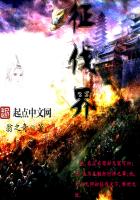SHE SINGS TO HER NEST
From my mother I learned to sing. She was always working and always singing. There were six children in the house, and she knitted and sewed and baked and brewed for us all. I used to toddle along at her side when she carried each day the home-made bread and the bottle of small beer for father's dinner at the mill. I worshiped my mother, and wanted to be like her. And that's why I went in for singing. I have sung more songs in my life than did Caruso. But my voice isn't quite up to his! So my singing has brought me no returns other than great chunks of personal satisfaction. The satisfaction was not shared by my hearers, and so I have quit. But my heart still sings, and always will. And this I owe to my mother.
I can see her yet in our tiny Welsh cottage, her foot on a wooden cradle rocking a baby, my baby brother, her hands busy with her knitting, her voice lifted in jubilant song for hours at a time. And all her songs were songs of praise.
She thanked God for life and for strong hands to labor for her little ones. In those days furniture was rare, and few were the pieces in a worker's home. It took a dozen years for her to acquire two feather beds. And when at last we owned two bedsteads, we rated ourselves pretty rich. We boys slept five in a bed. Why were bedsteads in those days harder to get than automobiles are to-day? Because the wooden age still lingered, the age of hand work. And it took so long to make a bed by hand that people came into the world faster than beds. But within my lifetime the iron mills have made possible the dollar bedstead.
The working man can fill his house with beds bought with the wage he earns in half a week. This, I suppose, is one of the "curses of capitalism."I have heard how "the rights of small peoples" have been destroyed by capitalism; and if the right to sleep five in a bed was prized by the little folks, this privilege has certainly been taken away from them. At the Mooseheart School we are pinched for sleeping room for our fast-growing attendance. I suggested that, for the time being, we might double deck the beds like the berths in a sleeping car. "No," cried the superintendent. "Not in this age do we permit the crowding of children in their sleeping quarters." So this is the slavery that capitalism has driven us to; we are forced to give our children more comforts than we had ourselves. When I was sleeping five in a bed with my brothers, there was one long bolster for five hot little faces. The bolster got feverish and a boy sang out: "Raise up." We lifted our tired heads. "Turn over." Two boys turned the bolster. "Lie down." And we put our faces on the cool side and went to sleep.
Those were not hardships, and life was sweet, and we awoke from our crowded bed, like birds in a nest awakened by their mother's morning song. For, as I have said, my mother was always singing.
Her voice was our consolation and delight.
One of the most charming recollections of my boyhood is that of my mother standing at our gate with a lamp in her hands, sending one boy out in the early morning darkness, to his work, and at the same time welcoming another boy home. My brother was on the day shift and I on the night, which meant that he left home as Iwas leaving the mills, about half past two in the morning. On dark nights--and they were all dark at that hour--my mother, thinking my little brother afraid, would go with him to the gate and, holding an old-fashioned lamp high in her hands, would sing some Welsh song while he trudged out toward the mills and until he got within the radius of the glare from the stacks as they. belched forth the furnace flames. And as he passed from the light of the old oil burner into the greater light from the mills, Iwalked wearily out from that reflection and was guided home by my mother's lamp and song on her lips.
Happy is the race that sings, and the Welsh are singers. After the tiring labor in the mills we still had joy that found its voice in song. When I was six years old I joined a singing society. The whole land of Wales echoes with the folk songs of a people who sing because they must.
The memory of my mother singing, has made my whole life sweet.
When blue days came for me, and hardship almost forced me to despair, I turned my thoughts to her, singing as she rocked a cradle, and from her spirit my own heart took hope again. I think the reason I have never cared for drink is this: the ease from mental pain that other men have sought in alcohol, I always found in song.















